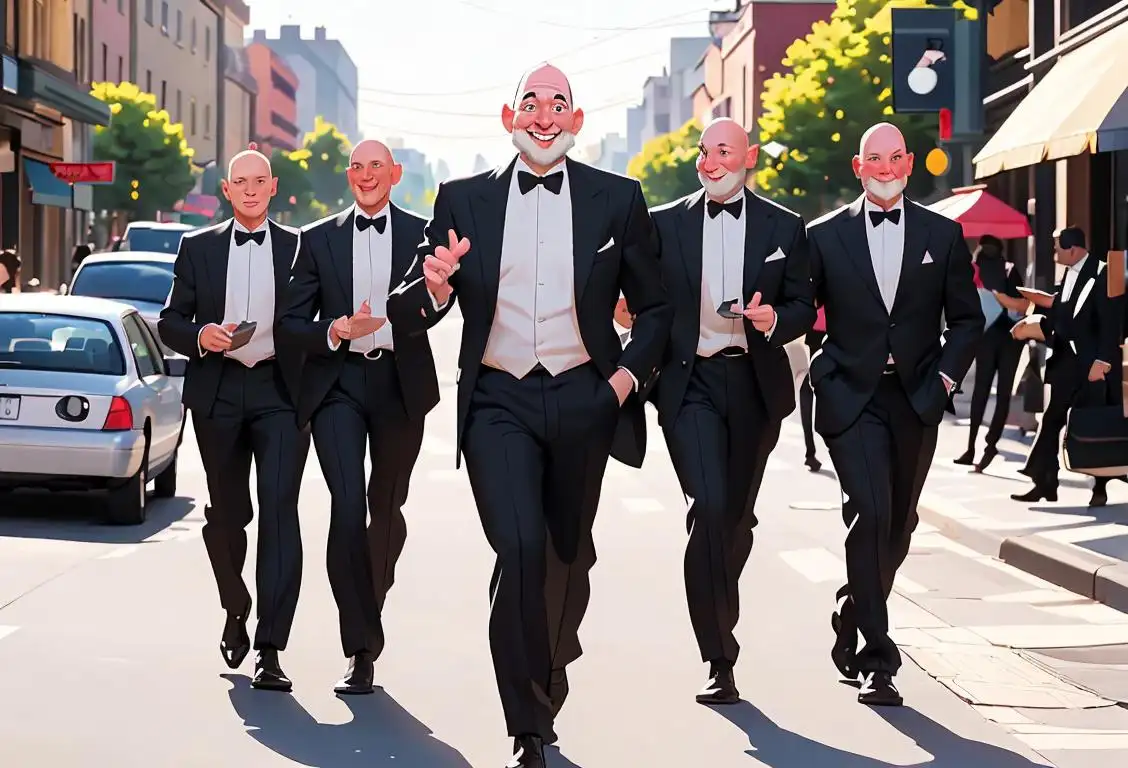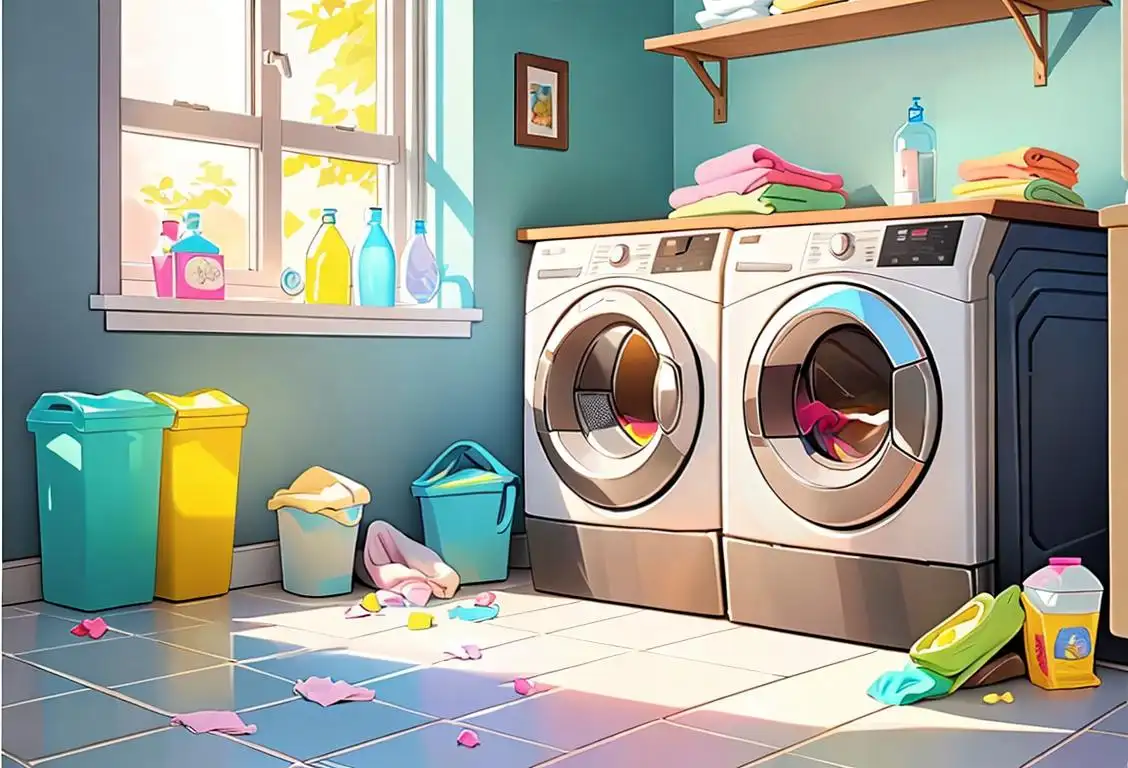National Bald Guy Day

Welcome to the celebration of National Bald Guy Day! This is the day we honor and appreciate our smooth-headed friends who rock the bald look with confidence and style. Whether it's a choice or a result of nature's whims, being bald is something to embrace, not hide. So, let's dive into the history and significance of this special day and celebrate our bald brothers!
When is Bald Guy Day?
It's national bald guy day on the 11th June.
The Internet History of National Bald Guy Day
Although National Bald Guy Day has gained popularity recently, its internet history can be traced back to early 2010. The first online mention of this day can be found on a forum dedicated to celebrating unique and unusual holidays. A user named 'BaldIsBeautiful' proposed the idea of honoring bald men by setting aside a specific day for their recognition and appreciation.
Since then, National Bald Guy Day has gained traction on various social media platforms, with people sharing bald-inspired memes, funny anecdotes, and uplifting stories of bald men who have made significant contributions to various fields. It has become a day to shatter societal stereotypes and embrace the beauty of baldness in all its glory.
How to Celebrate
Celebrating National Bald Guy Day is as easy as one, two, bald! Here are some fun ideas to make this day extra special:
- Host a bald-themed party where everyone embraces their inner baldness. Think shiny head decorations and bald-inspired costumes!
- Organize a charity event to raise awareness and funds for organizations supporting individuals experiencing hair loss.
- Share your favorite bald role models and their inspiring stories on social media using the hashtag #BaldAndProud.
- Offer free head massages to your bald friends and loved ones (with their consent, of course!).
Did You Know?
Did you know that being bald is not just for men? Women can rock the bald look with absolute confidence too! Many brave and beautiful women have embraced baldness as a symbol of strength and empowerment.
History behind the term 'Bald Guy'
14th century
Origins of the term
The term 'bald' can be traced back to the 14th century when it was first used in Middle English. It derived from the Old English word 'bald', which meant 'shiny' or 'having a white spot or patch'. At that time, the term was not specifically associated with hair loss or being completely hairless.
1437
Early usage of 'bald' to describe someone with no hair
In the year 1437, the term 'bald' was used to describe someone who had little or no hair on their head. It was derived from the Middle English word 'balled' which meant white or shining. Back then, it was commonly used to refer to individuals who had a noticeably smooth and shiny scalp due to hair loss.
16th century
Shifting focus to hair loss
In the 16th century, the term 'bald' began to be associated with hair loss. It was commonly used to describe individuals who had thinning or receding hair, particularly on the crown of their head. This usage of the term gradually gained popularity and became commonly understood as a reference to partial hair loss.
1795
Introduction of the derogatory term 'baldpate'
During the late 18th century in 1795, the derogatory term 'baldpate' emerged. Originating from the word 'bald' and 'pate' which meant head, it was primarily used to mock individuals with a completely hairless crown. Although it initially carried a negative connotation, it gradually became a playful term among friends.
1868
Introducing 'bald guy' as a casual term
In the year 1868, the term 'bald guy' appeared as a casual expression to refer to men without hair on their heads. This terminology was liked as it added a touch of informality and friendliness to the conversation, distinguishing it from previous derogatory terms. 'Bald guy' became a more widely accepted term within social circles.
18th century
Evolution to 'bald guy'
While the term 'bald' continued to be used to refer to hair loss, it wasn't until the 18th century that the phrase 'bald guy' started to emerge. 'Guy' was a colloquial term used to refer to a man, often with a sense of informality or familiarity. Combining 'bald' with 'guy' created a more casual way to describe a man who was experiencing hair loss or had a hairless scalp.
20th century
Popularization and cultural impact
Throughout the 20th century, the term 'bald guy' gained significant popularity and became widely used in popular culture, including literature, films, and comedy sketches. It was often employed to portray characters with a distinct appearance or to elicit comedic effect. This cultural impact further solidified the term's association with hair loss and its colloquial usage.
1921
Popularity of 'bald guy' in popular culture
By the early 20th century, the term 'bald guy' gained significant popularity in popular culture. It was commonly used in comedic sketches, cartoons, and jokes, further embedding it into the public lexicon. During this time, Hollywood played a crucial role in perpetuating the term by depicting bald characters in various comedic roles.
Present day
Continued usage and acceptance
In the present day, the term 'bald guy' remains a commonly used phrase to describe a man with little or no hair on his scalp. While it can sometimes carry negative connotations or be used playfully, it has also become widely accepted as a neutral descriptive term. The acceptance and normalization of the term have contributed to a more inclusive attitude towards different appearances and has led to the celebration of diverse forms of beauty.
1980
'Bald guy' as a term of empowerment
During the 1980s, the term 'bald guy' underwent a significant transformation, becoming a term of empowerment. The emerging bald acceptance movement promoted the idea that baldness was not something to be ashamed of but rather a unique characteristic to embrace. 'Bald guy' became a symbol of confidence and self-acceptance.
Present Day
Popular usage and societal acceptance
In the present day, 'bald guy' remains a widely recognized and accepted term used to describe individuals with no or thinning hair on their heads. It is no longer viewed purely as a negative or derogatory label but instead represents a diverse range of individuals who embrace their baldness. Society recognizes the term as a reflection of different hairstyles and personal preferences.
Did you know?
Did you know that being bald is not just for men? Women can rock the bald look with absolute confidence too! Many brave and beautiful women have embraced baldness as a symbol of strength and empowerment.Tagged
awareness nsfw fun loved onesFirst identified
11th June 2019Most mentioned on
11th June 2019Total mentions
4Other days
Whine Day
Ojd Day
Special Education Day
Awareness Day
Children Day
Lost Sock Memorial Day
Opposite Day
Happiness Day
One Day
Personal Safety Day









